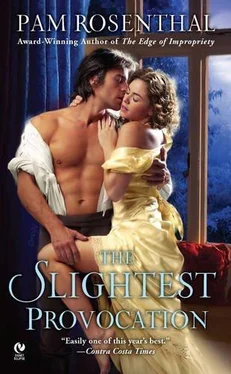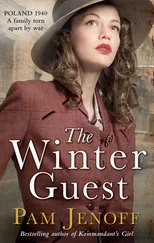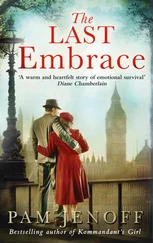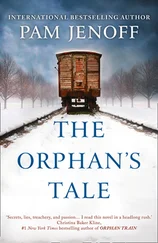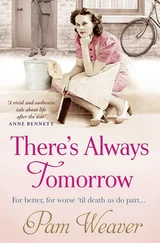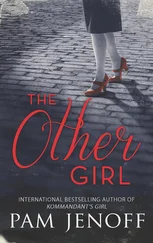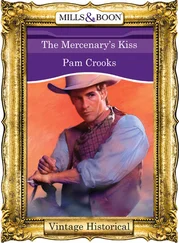He remembered mounting his horse and turning away as though deaf to the faint jeers at his back. Directing their horses back toward Rowen, he and Will had ridden past a lovely-looking woman he thought must be Mrs. Penley. Her walk had a sort of floating quality, even as she made her brisk way toward the square, carrying a large basket on her arm. She’d appeared to be gazing sympathetically at him, her concern as irksome to him as her grubby little daughter’s hostility.
Or perhaps he’d simply been envious of the daughter and her place in the game of hare and hounds. As a boy he’d done a lot of things to make the old marquess angry, but playing with the village children would have been unthinkable. Even supposing they’d wanted to play with him.
For a confused moment, he thought he saw Mrs. Penley again, in a white dress with tiny black dots printed over it, black shawl, and a deep straw bonnet. Floating toward him with a basket on her arm.
But Mrs. Penley had died a number of years ago.
Odd, the tricks the mind played; Mary didn’t resemble her mother very much at all. Jessica, he recalled, was the tall, blond sister, while Julia was shorter, dark like Mr. Penley (he’d rather admired how Mary’s mother had never slouched in a misguided effort to make her barrel-shaped husband appear taller). Pink-cheeked, brown-eyed Mary was somewhere in the middle, a bit like each parent but generally like neither-a changeling, he’d once called her, stolen from her cradle by fairies; she’d giggled, they’d kissed and then they’d kissed again (kissing, at the time, being something they were confident of, while other kinds of touching were still new, strange, and a bit frightening).
She a changeling, and he (as he’d once overheard a nursery maid call him) a little dark secret. Neither of them belonging to anyone but the other. Or so they’d vowed and so they’d believed-before life and other people and their own frailties and foolishness had gotten between them and shown them what all of that was worth.
Surprising, then, to observe how she’d grown into her mother’s grace, her impatient stride and gestures moderated, at least in this familiar setting, by an air of being at ease and at home.
Dammit, it was his home too.
After which observation he had to wonder how long he’d been standing with his mouth agape while people passed by him on either side. He couldn’t swear to it, but she appeared to have paused in her steps as well.
The church clock struck a quarter past noon.
She started forward and so did he. The dusty haze of midday sunshine glared off the shop windows. He squinted to get his bearings.
The footpath to Rowen Park was over to the left. He could remember it quite clearly. It was the direct way to go; the more picturesque path took you on a meandering stroll through the forest and connected you to some more obscure little byways.
But he’d already lingered too long. At Rowen, the coachman would have informed them of his arrival by now; Susanna would have had time to get Wat ready to see him. Which was why he’d stopped in the village in the first place-to give them a little time to prepare. Well, wasn’t that why he’d stopped in the village?
He and she were only a few feet apart. He paused long enough to bow. More of a nod, he expected. She nodded back and swept impatiently around the corner to the post office. He shrugged and turned away toward Rowen.

How many people had there been in the square? Quite a few, Mary thought, by the number of curious gazes she could feel prickling her skin.
No matter. He and she hadn’t spoken. Their legal separation was still in evidence. Everything was coldly proper.
Nor was there a need to apologize to Peggy-at least not in so many words. Sufficient for Mary to nod (as a concession of defeat) and then to shrug her shoulders to signal that she wouldn’t be making unfair accusations anytime soon.

And yes, as her sister and niece were good enough to report at dinner, they had seen him at Rowen. He’d arrived just as they’d been taking their leave.
Which was too bad, for Mary had hoped to discuss the cistern project. Or Fred’s and Fannie’s impending visits. Or anything else in the world. Algebra, perhaps.
Mercifully, Elizabeth kept herself relatively quiet, as though occupied with thoughts too interesting to share with her mother and aunt. While Jessica, on the other hand, seemed to feel it incumbent to observe that she, for one, had “found him much improved when we encountered him today at Rowen, Mary. Even if you might not agree.
“Oh, and by the way,” she added, “he’ll be reading the lesson at church tomorrow, in his brother’s place.”
It seemed that his sister-in-law had insisted upon it. She’d be speaking to the vicar about it. And his brother had looked very pleased at the notion.
Which meant that if she wanted to avoid stares and unpleasantness, Mary would have to remain at home.
She responded with a snort of disbelief at the thought of Kit peering sternly down over the lectern as the old marquess had done. Absurd, sanctimonious.
And was she to be shut up at Beechwood Knolls while he had the run of the neighborhood?
“It’s as though he believes himself some personification of order and rectitude these days. He’ll enjoy walking about Grefford, people gazing respectfully at him, when in his heart he’s really the same unruly…”
“Odd,” Jessica said, “I’ve heard you say quite similar things about yourself on your visits home. And after all, he is a war hero now.”
Perhaps. If a bit ungenerous of Jessie to point it out.
“As well,” Elizabeth added, “as seeming quite the orderly, polite, respectable gentleman.” Shrugging her slender shoulders. “At least to me. ”
But that surely was a bit much to swallow. Mary narrowed her eyes at her niece. “Yes,” she said, “and you like the young marchioness as well.”
Traitors. The wretched girl and her mother both.
Jessica burst into peals of sudden laughter. The three women looked curiously at each other, none of them quite sure for the moment just where her own loyalty lay.

Just as well, Kit thought, that she hadn’t been at church. The scriptural passage was very fine and he’d done a reasonable job of reading it aloud. But he might not have been able to carry it off if he’d had to avoid catching her gaze. Yes, he could just imagine it. You, catching her gaze. Yes, he could just imagine it. You, reading the lesson? Her eyes mocking him from the Penley family pew.
In truth, he’d rather enjoyed booming out the biblical sonorities. Even pausing to glare for an instant at a little boy who’d been whispering to his mate.
Why not, Mary? Why should you be the only one to find your simple, serious, respectable self in the country?
How pretty she’d looked, passing through the village square with a basket over her arm. White gown with black dots. But they weren’t dots, they were very tiny flowers-he’d only realized it during the instant when she’d swept past him so haughtily. Lovely flowing stuff the gown was made of, especially lovely to think of her wearing that particularly disreputable shift under it. A length of scarlet cord around her wrist-no, that had been merely a trick of his imagination, set aflame by, of all things, her ladylike village propriety.
Читать дальше
